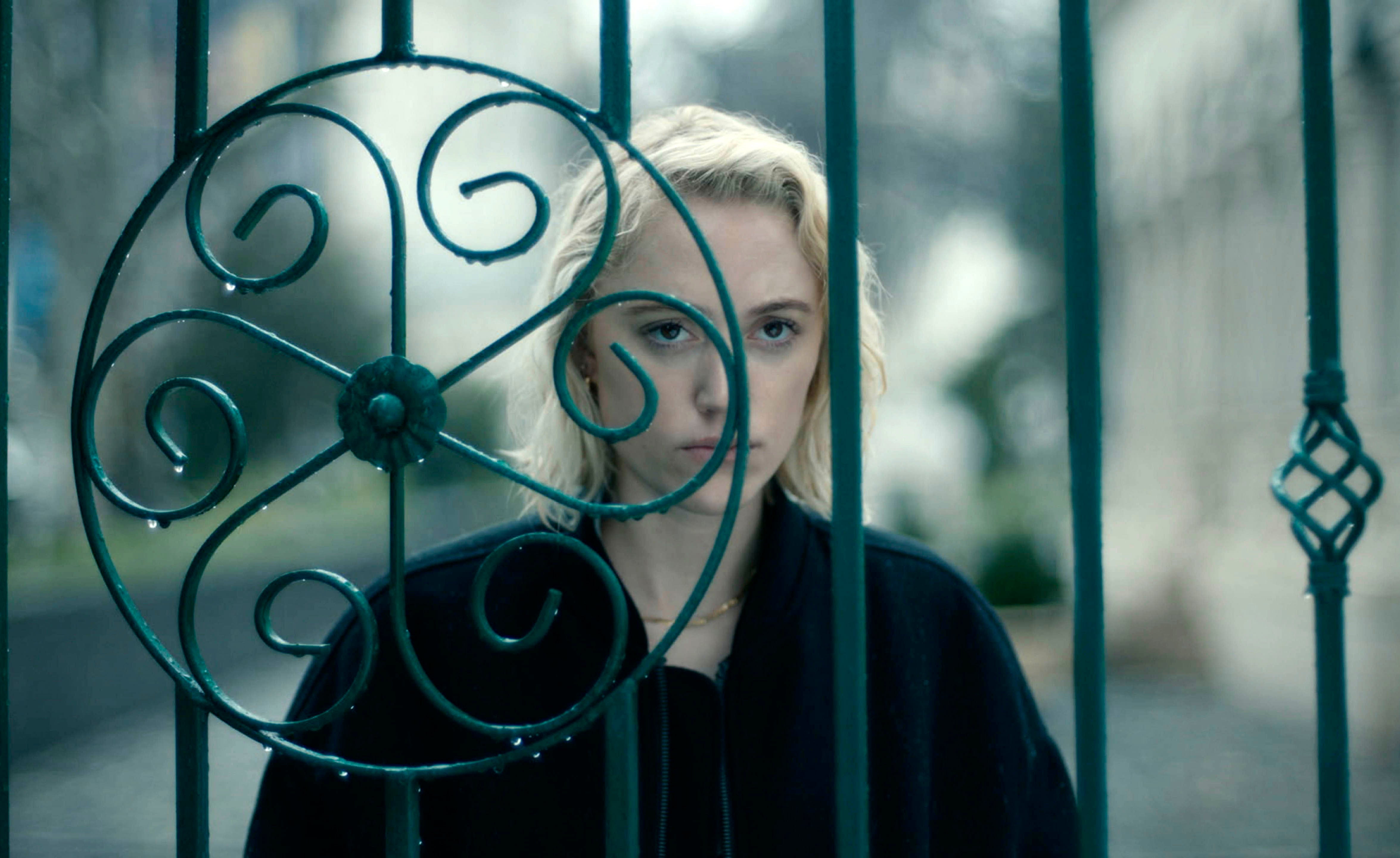In ‘Watcher,’ a stalker thriller with a female gaze
An American woman moves to Bucharest with her partner and begins to suspect she’s being stalked in “Watcher,” a stylish, unnerving thriller that premiered Friday at the Sundance Film Festival

Your support helps us to tell the story
From reproductive rights to climate change to Big Tech, The Independent is on the ground when the story is developing. Whether it's investigating the financials of Elon Musk's pro-Trump PAC or producing our latest documentary, 'The A Word', which shines a light on the American women fighting for reproductive rights, we know how important it is to parse out the facts from the messaging.
At such a critical moment in US history, we need reporters on the ground. Your donation allows us to keep sending journalists to speak to both sides of the story.
The Independent is trusted by Americans across the entire political spectrum. And unlike many other quality news outlets, we choose not to lock Americans out of our reporting and analysis with paywalls. We believe quality journalism should be available to everyone, paid for by those who can afford it.
Your support makes all the difference.An American woman moves to Bucharest with her partner and begins to suspect she’s being stalked in “Watcher,” a stylish, unnerving thriller that premiered Friday at the Sundance Film Festival.
Starring Maika Monroe (“The Guest”), Karl Glusman (“Devs”) and Burn Gorman (“The Dark Knight Rises”), the film is one of the big acquisition titles at the festival.
Though hardly the first film to have a pretty blonde looking over her shoulder everywhere she goes, “Watcher” has the distinction of having a woman behind the camera too. The director, Chloe Okuno, fought for the job. She’d come across the script a few years after graduating from the American Film Institute where’d she’d made a name for herself with her thesis film “Slut,” a coming-of-age horror. It got her representation and some industry attention. But she had yet to make a feature.
“I really wanted the gig,” Okuno said. “I think I just tried harder than anyone else.”
Immediately she got to work refining the script, written by Zack Ford, to make sure the lead, Julia, felt true to her own experiences as a woman. A few more years would pass before they’d get the chance to make it.
“It was a little bit mysterious to me, the financing situation, but I just knew that it wasn’t getting financed,” Okuno said.
Like many independent movies, they had to be flexible. At one point, they thought about shooting it in Toronto which would play New York. But that fell through and Romania opened up, and, with that so did the possibilities for the story. Okuno rewrote the script to take place in Bucharest, where, she decided Julia would be an expat who doesn’t know the language, adding another layer of alienation to this story of paranoia and trauma.
The cast didn’t even come together until they were in pre-production in Bucharest in early 2021. Okuno said casting during the pandemic was especially difficult because many people were actually working. But then Monroe, who had made waves in thrillers and horrors such as “It Follows” and “The Guest,” came her way, and she knew she’d found her star.
“She obviously is just so smart and she also had experience living abroad and kind of knew what that felt like,” Okuno said. “She seemed to connect in a very deep way with Julia and just brought so much to the role. She understood it implicitly.”
Monroe went a step further than most actors and developed a look book for how she imagined her character would dress, pulling references to Anna Karina and Catherine Deneuve in their 1960s New Wave finest, which fit with what Okuno was envisioning too. She even wears some pieces from her own closet in the final version.
To inspire the tone and visuals, even though it's a modern piece, Okuno also looked to films of the past, like Krzysztof Kieslowski’s “Three Colors: Blue,” Satoshi Kon’s “Perfect Blue,” Sofia Coppola’s “Lost in Translation” and Roman Polanski’s apartment trilogy (“The Tenant,” “Repulsion” and “Rosemary’s Baby”).
Shooting during the pandemic was stressful, especially considering it was her first feature, but Okuno said it made it that much more triumphant to finish.
“A lot of what I was trying to do was show moments where, as a woman, we have a very different experience in the world than a man. It’s really hard to communicate why that experience can occasionally be really scary. And it’s things that are as simple as walking down the street alone at night or sitting in a movie theater when a creepy guy comes and sits down next to you —- things that aren’t necessarily large, flashy set pieces,” Okuno said. “My dearest hope is that the movie is able to show why situations like that can be so tense and full of dread and frightening, and that it’s sort of omnipresent in some ways.”
___
Follow AP Film Writer Lindsey Bahr on Twitter: www.twitter.com/ldbahr